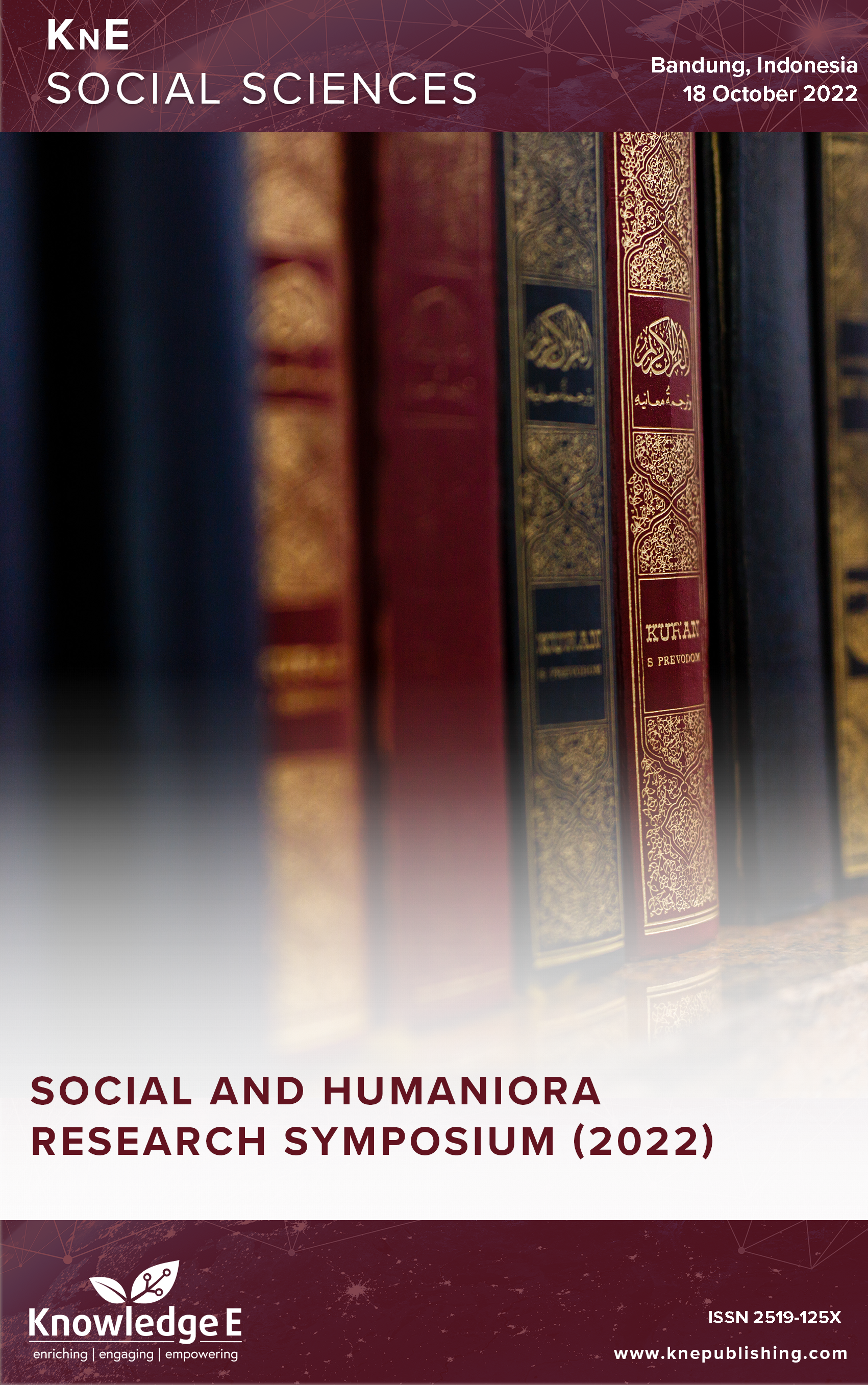Evaluation of Sustainable Development Goals (SDGs) Indicators in Wantilan, Subang Regency, 2021
DOI:
https://doi.org/10.18502/kss.v8i18.14212Abstract
Sustainable development goals (SDGs) are a global agenda as the successor of the millennium development goals (SDGs) with a broader, holistic, and universal vision. The SDGs contain 17 goals, 169 targets, and 289 indicators which are used as a reference for local governments in developing their territories. In measuring success at the rural level, a categorization is used in the form of the Indeks Desa Membangun (IDM), which is formed based on three indices, namely, the social resilience index, the economic resilience index, and the ecological or environmental index. Wantilan is one of the villages with IDM status as a developed village located in Subang Regency. The status of the IDM needs to be upgraded to become an independent village by taking into account local government policies that are also related to the SDGs indicators. In addition, the condition of Wantilan Village which experienced a transition from being an agricultural area to an industrial area requires an evaluation of the achievement of the SDGs indicators. There are 4 areas of discussion related to SDGs available on the Wantilan Village Dashboard, including employment and education. The results of this study indicate that the achievement of certain SDGs indicators, especially in the fields of education and employment, has not met the expected targets.
Keywords: achievement, IDM, rural, SDGs, Wantilan
References
[2] Dhesinta W. „Sustainable finance on management and protection of environment (study os sustainable finance implementation in Indonesia),“ rev. Proceedings of The Social and Humaniora Research Symposium (Sores 2018), Bandung, 2019. https://doi.org/10.2991/sores-18.2019.133
[3] Iskandar AH. SDGs DESA : Percepatan Pencapaian Tujuan Pembangunan Nasional Berkelanjutan. Jakarta: Yayasan Pustaka Obor Indonesia; 2020.
[4] Dariah AR, Mafruhat AY, Hendrakusumah E. „Framework of sustainable development planning in Indonesia.“ rev. Journal of Physics: Conference Series. 2019;1375(1):012028.
[5] Indonesia R. Undang-Undang Nomor 20 Tahun 2003 tentang Sistem Pendidikan Nasional. Jakarta: Sekretariat Negara; 2003.
[6] Anas AY, Riana AW, Nurliana CA. „Desa dan Kota dalam Potret Pendidikan,“ Prosiding KS: Riset & PKM, zv. 2, %1. vyd.3, pp. 301-444, 2015.
[7] Putri A, Setiawina ND. „Pengaruh Umur, Pendidikan, Pekerjaan terhadap Pendapatan Rumah Miskin di Desa Bebandem. E-Jurnal Ekonomi Pembangunan Universitas Udayana. 2013:173–180.
[8] Badan Perencanaan Pembangunan Nasional. Metadata Indikator Tujuan Pembangunan Berkelanjutan (TPB) / Sustainable Development Goals (SDGs) Indonesia Pilar Pembangunan Sosial Edisi II. Jakarta: Badan Perencanaan Pembangunan Nasional; 2020.
[9] Indonesia R. Peraturan Presiden Nomor 18 Tahun 2020 tentang Rencana Pembangunan Jangka Menengah Nasional Tahun 2020-2024. Jakarta: Sekretariat Negara; 2020.
[10] Indonesia R. Undang-Undang Nomor 13 Tahun 2003 tentang Ketenagakerjaan. Jakarta: Sekretariat Negara; 2003.
[11] Indonesia R. Peraturan Presiden tentang Rencana Kerja Pemerintah Tahun 2021. Jakarta: Sekretariat Negara; 2020.
[12] Badan Perencanaan Pembangunan Nasional. Metadata Indikator Tujuan Pembangunan Berkelanjutan (TPB) / Sustainable Development Goals (SDGs) Indonesia Pilar Pembangunan Ekonomi Edisi II. Jakarta: Badan Perencanaan Pembangunan Nasional; 2020.

